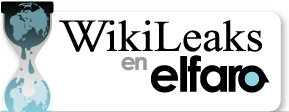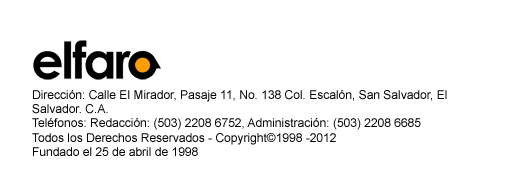THE AMBASSADOR'S MEETING WITH DEFENSE CHIEF VASQUEZ
Publicado el 31 de Mayo de 2011
id: 217183
date: 7/17/2009 21:58
refid: 09TEGUCIGALPA615
origin: Embassy Tegucigalpa
classification: SECRET//NOFORN
destination:
header:
VZCZCXRO0609
OO RUEHAO RUEHCD RUEHGA RUEHGD RUEHHA RUEHHO RUEHMC RUEHMT RUEHNG
RUEHNL RUEHQU RUEHRD RUEHRG RUEHRS RUEHTM RUEHVC
DE RUEHTG #0615/01 1982158
ZNY SSSSS ZZH
O 172158Z JUL 09
FM AMEMBASSY TEGUCIGALPA
TO RUEHC/SECSTATE WASHDC IMMEDIATE 0162
INFO RUEHWH/WESTERN HEMISPHERIC AFFAIRS DIPL POSTS IMMEDIATE
RUEAHND/COMJTF-B SOTO CANO HO IMMEDIATE
RUEKJCS/JOINT STAFF WASHDC IMMEDIATE
RUMIAAA/CDR USSOUTHCOM MIAMI FL IMMEDIATE
RUEAHND/CDRJTFB SOTO CANO HO IMMEDIATE
RUEAIIA/CIA WASHDC IMMEDIATE
RULGPSU/COMSOCSOUTH IMMEDIATE
RHEFDIA/DIA WASHINGTON DC IMMEDIATE
RUEIDN/DNI WASHINGTON DC IMMEDIATE
RHEHAAA/NATIONAL SECURITY COUNCIL WASHINGTON DC IMMEDIATE
RUEKJCS/SECDEF WASHDC IMMEDIATE
RUMIAAA/USSOUTHCOM MIAMI FL IMMEDIATE
----------------- header ends ----------------
S E C R E T SECTION 01 OF 02 TEGUCIGALPA 000615
NOFORN
SIPDIS
STATE FOR WHA/CEN
E.O. 12958: DECL: 07/17/2019
TAGS: AEMR, ASEC, CASC, KFLO, MARR, PREL, PINR, AMGT, PGOV,
TFHO1, HO
SUBJECT: TFHO1: THE AMBASSADOR'S MEETING WITH DEFENSE CHIEF
VASQUEZ
REF: A/S SHANNON-AMBASSADOR LLORENS TELCON 07/16/09
Classified By: Ambassador Hugo Llorens, reason 1.4 (b & d)
1. (S/NF) Summary: The Ambassador and DATT met with Honduran
Chief of Defense (CHOD) MG Romeo Vasquez Velasquez to press
the importance of the de facto regime's serious participation
in the Arias-led negotiations on July 18, as well as the
repercussions if the talks do not show substantive progress.
The Ambassador reiterated the firm USG position that the
democratic and constitutional order be restored rapidly.
Vasquez agreed to deliver this message to de facto regime
President Micheletti. Vasquez expressed his own willingness
to support a negotiated resolution and restoration of
President Zelaya, but noted the armed forces were concerned
that civilian politicians would make them the scapegoat for
the coup and crisis. End summary.
2. (S/NF) The Ambassador and DATT met with Vasquez at a
neutral location in accordance with Department guidance
(Ref). The Ambassador informed Vasquez he was under
instructions to make a major effort to reach out to key
Honduran political, business and civil society figures to
convince them of the critical importance that the de facto
Micheletti regime engage in serious negotiations in the next
mediation round sponsored by President Arias on June 18 in
San Jose. He reiterated the U.S. and international community
insistence that the democratic and constitutional order be
re-established and that the legitimate President of Honduras,
Manuel Zelaya, be restored to office. The Ambassador
stressed the Arias mediation effort offered the most viable
diplomatic channel to restore the democratic order but also
took into consideration the concerns of Zelaya's opponents
and the de facto regime's supporters.
3. (S/NF) The Ambassador expressed concern that failure to
make substantive progress on July 18 could result in the
collapse of the Arias effort, which would bring about
significant negative consequences for Honduras and only
assure the international community would take a harder line.
The Ambassador also stressed that failure to resolve the
crisis soon would force the USG to adopt punitive measures
against both the de facto regime and the individuals
responsible for the coup and the continuation of the crisis.
(Note: Unstated but understood was the likelihood of the
revocation of visas for individuals the USG deemed culpable
for the crisis. End note.)
4. (S/NF) The Ambassador underscored the longstanding support
and friendship the USG and the people of the United States
held for Honduras. He said the United States had always
valued Honduras as a democratic ally, and that the United
States remained firm in its commitment to democracy in
Honduras. He noted the restoration of the democratic order
would allow for normalization of bilateral relations and
mil-mil cooperation. He urged Vasquez to approach the de
facto regime leadership and Micheletti himself to press them
on the importance of engaging in serious negotiations under
the Arias effort.
5. (S/NF) Vasquez initially discussed the armed forces'
(HOAF) effort to avoid being dragged into the political
crisis caused by President Zelaya's struggle with his
opponents over his desired referendum, i.e. the "Fourth Urn."
But in the end, he said, the HOAF had been manipulated by
all sides. Vasquez attempted to justify the coup action,
asserting that the military was simply following the orders
of the Supreme Court on June 28. He said he had always been
loyal to President Zelaya but the Supreme Court's order was
constitutional. Vasquez then lamented that Micheletti and
his advisors were the same people who were unable to show
flexibility before the events of June 28, stubborn and
aggressive. Vasquez said Micheletti and his core team
continue to take a hard line. Nevertheless, after extensive
discussion Vasquez agreed that in the interest of the
Honduran people and U.S. relations he would go to Micheletti
TEGUCIGALP 00000615 002 OF 002
and convey the Ambassador's message. Vasquez added the
timing of the Ambassador's visit was opportune, because he
would be going directly to a meeting at the Presidential
Palace to discuss the negotiating strategy for July 18.
6. (S/NF) Speaking in general about the current situation,
Vasquez noted the most difficult obstacle for the success of
the mediation was the almost pathological fear of Zelaya and
his association with Venezuelan President Chavez, held not
only by the leadership of the de facto regime, but of the
overwhelming majority of their supporters. While Vasquez
understood the diplomatic balance sheet argued for supporting
the Arias process, an early return of Zelaya could weaken
Honduran democratic institutions. He added that while the
threatening rhetoric of Chavez and Zelaya was intense, his
own view was that Zelaya's support was on the decline in the
country. Vasquez said HOAF intelligence revealed that a
significant amount of Venezuelan funding was pouring into
social sectors to build support for the pro-Zelaya movement,
but that nationwide no more than 7,500 people were
participating in the week's pro-Zelaya demonstrations,
indicating waning support.
7. (S/NF) Comment: Vasquez seems torn but we believe he is
looking for the U.S. to help him find a way out and will
carry our message to the Micheletti camp. What is also clear
is that the HOAF is increasingly concerned they will be left
holding the bag or made into the villain in this crisis.
Whatever deal is made, the military leadership must be kept
in the loop in order for it to succeed. End comment.
LLORENS
=======================CABLE ENDS============================




